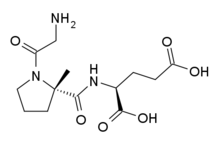Acadia Pharmaceuticals Inc. announced the U.S. Food and Drug Administration (FDA) acceptance for filing its New Drug Application (NDA) of trofinetide for the treatment of Rett syndrome. The FDA has granted a priority review and assigned a PDUFA (Prescription Drug User Fee Act) action date of March 12, 2023. The FDA has also informed the company that at this time they are not planning to hold an Advisory Committee meeting.
“We’re pleased that the FDA has accepted our NDA filing and we will be working closely with them to facilitate completion of the review in a timely manner,” said Steve Davis, Acadia’s Chief Executive Officer. “If approved, trofinetide will be the first drug available for the treatment of Rett syndrome, a rare and devastating condition for patients and their families. This milestone reinforces Acadia’s ongoing commitment to advancing research into high unmet needs in disorders affecting the central nervous system.”
Rett syndrome is a complex, multisystem neurodevelopmental disorder that includes a period of normal development followed by significant developmental regression with loss of language and hand function skills, impaired gait and development of hand stereotypes.1,2 It occurs worldwide in approximately one of every 10,000 to 15,000 female births.3
“Rett is a complex disease that can present with a diverse array of symptoms. In clinical trials, trofinetide demonstrated a significant improvement in a range of Rett syndrome symptoms,” said Jeffrey L. Neul, M.D., Ph.D., Annette Schaffer Eskind Chair and Director, Vanderbilt Kennedy Center, Professor of Pediatrics, Division of Neurology, Pharmacology, and Special Education, Vanderbilt University Medical Center and Phase 3 Lavender™ study investigator. “We look forward to the FDA’s review of this submission and the prospect of having access to the first approved treatment for Rett syndrome.”
The NDA is supported by results from the pivotal Phase 3 Lavender study evaluating the efficacy and safety of trofinetide versus placebo in 187 girls and young women aged 5-20 years with Rett syndrome. The study demonstrated a statistically significant improvement over placebo on the co-primary endpoints, the Rett Syndrome Behaviour Questionnaire (RSBQ) total score change from baseline to 12 weeks (p=0.0175; effect size=0.37) and the Clinical Global Impression-Improvement (CGI-I) scale score (p=0.0030; effect size=0.47). The RSBQ is a caregiver assessment of the core symptoms of Rett syndrome, and the CGI-I is a global physician assessment of worsening or improving of Rett syndrome. In addition, the study also met its key secondary endpoint, the Communication and Symbolic Behavior Scales Developmental Profile™ Infant-Toddler Checklist–Social Composite Score (CSBS-DP-IT–Social) change from baseline to week 12 (p=0.0064; effect size=0.43), a caregiver assessment of ability to communicate.
In 2018, Acadia entered into an exclusive license agreement with Neuren Pharmaceuticals Limited (ASX: NEU) for the development and commercialization of trofinetide for the treatment of Rett syndrome and other indications in North America. In addition to receiving priority review by the FDA, trofinetide has been granted Fast Track Status and Orphan Drug Designation for the treatment of Rett syndrome in the U.S. and has been granted Rare Pediatric Disease (RPD) designation by the FDA. Upon FDA approval of a product with RPD designation, the sponsor can receive a Priority Review Voucher, which can be used to obtain priority review for a subsequent application.


